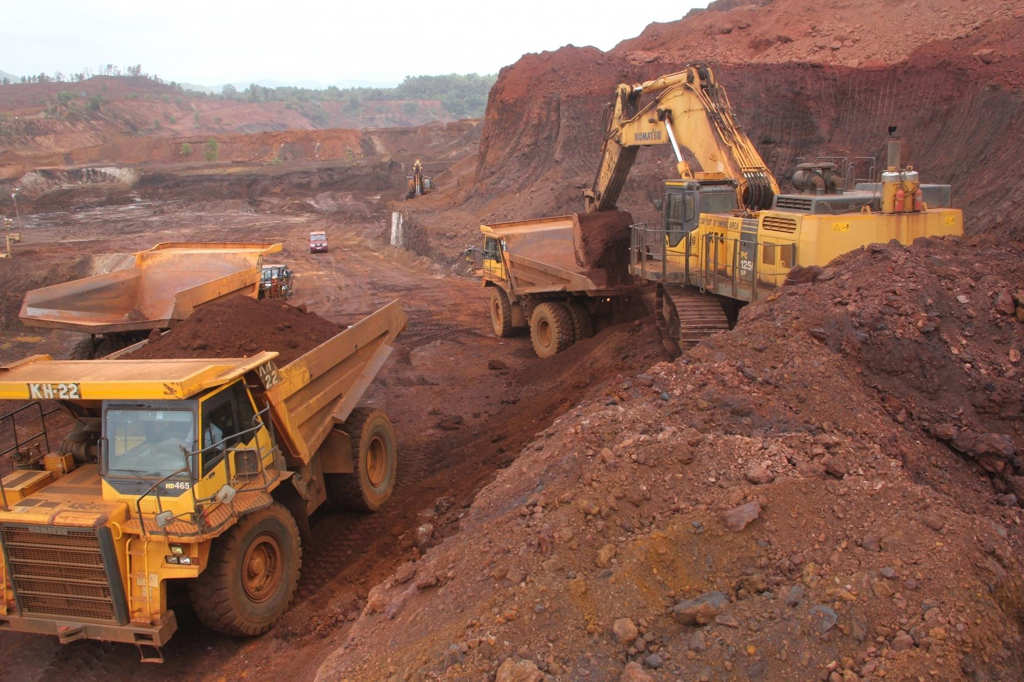In January this year the US think tank, Council for Foreign Relations (CFR) mentioned in a report that Venezuela is headed towards an economic, political and humanitarian conflict. The analysis added that the US might have to accord it top foreign policy intervention otherwise Venezuela would be flooding neighbours with refugees resulting in an unmitigated humanitarian disaster.
This assessment by the CFR is an irony considering that this Latin American country holds the world's largest oil reserves, has unending mineral resources and was once the richest country in the region.
Part of the downward trend in the fortune for Venezuela can be traced back to China's business transactions and manipulated contracts with the Latam country.
A detailed investigation by Diálogo Chino, an independent journalism platform dedicated to understanding the China-Latin America relationship, in partnership with Armando.info and the Latin American Centre for Investigative Journalism (CLIP) found how China swindled US$4.176 billion worth of iron ore from Venezuela for just $1 billion, pushing its mining sector into an abyss.
In her detailed investigation, journalist María Antonieta Segovia says that in 2009, China offered Venezuela US$1billion advance for 42.96 million tonnes of iron ore for the Wuhan Iron and Steel Corporation (Wisco) to be delivered over the next eight years. The agreement also included a commitment by China to improve the state-run Venezuelan mining company, CVG Ferrominera Orinoco's, iron ore production capacity. The idea was that Chinese companies will help in increasing Venezuela's iron ore production.
This was an extraordinary deal by all standards.
With matching ideologies, the communist government of China and the socialist government of Venezuela bonded well over reaching these agreements.
Diálogo Chino says that with the prevalent prices in 2009, 42.96 million tonnes of iron ore at international prices was worth US$4.176 billion, for which China paid less than 25 per cent. Also, China put down stringent conditions with yearly deadlines on the import of iron ore from Venezuela.
With the Chinese not keeping part of their agreement to upgrade and improve the capacities of Ferrominera, the company defaulted on exporting iron ore to China. Soon enough the China Development Bank (CDB) which had extended the $1 billion advance payment, issued a warning to the Venezuelan company about upholding the contract. The contract had said that if Ferrominera defaulted on the export, it would have to pay China at least US$70 million.
The Chinese debt trap laid out for Venezuela was now complete. To China it did not matter that its own commitment of upgrading Ferrominera's capacity to increase production was not honoured. In fact, the Venezuelan company's production capacity continued to decrease.
Subsequent Venezuelan government reports pointed out that it was a bad deal for two reasons – the contract they had signed was not favourable to them and their commitments to China also were difficult to fulfil.
The story does not end here.
In May 2011, Ferrominera and Wisco signed another agreement for the latter to expand the operational capacity of the Palua dock, dredge the Orinoco River and purchase machinery and spare parts to reduce the infrastructural problems for Ferrominera.
After delays of months, Wisco finally acknowledged that it did not have the capacity to either expand the operational capacity of the Palua dock or even dredge the Orinoco River. Wisco finally gave away the dredging project to China Railway Engineering Corporation Group (CRECG) and China Communications Construction Company (CCCC).
Wisco also gave away the Palúa wharf expansion project to a subsidiary of CRECG, called the China Railway 10th Engineering Group. Wisco kept just one project with itself – to purchase machinery and spare parts to help push up Ferrominera's production capacity.
Eventually, most of these commitments made by the Chinese companies did not materialise. Of the various commitments by numerous Chinese companies, just one – the expansion of the Palua wharf was complete, five years after the deadline.
While Venezuela was held accountable for the delayed delivery of iron ore, Chinese companies escaped all punitive actions.
Diálogo Chino says that By 2013, China paid just about US $23 per tonne of high quality Venezuelan iron ore at a time when international prices were in the range of US $135. Regarding the Venezuelan company Ferrominera, by 2020 its production capacity had fallen to one-seventh from the time China gave it money and sought to improve its production capacity.
In his 2018 article, China, Venezuela, and the Illusion of Debt-Trap Diplomacy, Matt Ferchen says: "Venezuela is no marginal case. Indeed, it is the single largest recipient of Chinese official finance, with the China Development Bank (CDB) extending the bulk of more than US $60 billion in loans since 2007." He highlights how the Chinese and Venezuelan relationship, based on loans for oil has led to the collapse of the Latin American country's oil sector.
Everything that China touched in Venezuela turned into ashes. Not just mining but oil also. That's another story for another day.
China ensured that its development aid brought ruin to Venezuela. The communist giant has successfully transplanted its debt-trap development aid model to Latin America after driving the economies of numerous countries in Asia and Africa into the ground.




















